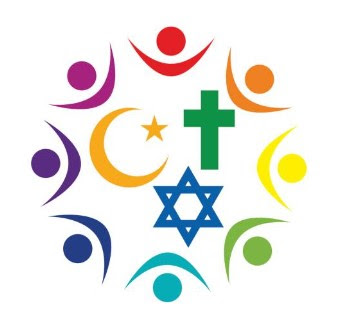Jewish Journey, World Expanding | by Natalie Katz
I grew up as a secular
Jew in a sheltered corner of Suffolk County, Long Island where everyone I knew
was either Jewish or Catholic, and almost everyone was white. Unlike most Jewish families on Long Island,
my family did not belong to a synagogue.
My parents were secular – Jewish by culture and identity, but not
religious. We attended a Jewish cultural
school on Saturdays, where we studied Yiddish, music, bible studies, and
current events. Our education explored
the rich history and traditions of our ancestors.
One of my teachers, Ruth
Minsky Sender, was a Holocaust survivor from Lodz, Poland. As a young teenager, she survived
imprisonment in Auschwitz because her poetry uplifted the spirits of the other
women in her barracks. In her soft
Polish accent, she explained to us the horrific circumstances, sharing her
experiences in the ghetto and the concentration camp, and delicately answering
our questions. This was not the cold
facts of a history book but rather the very real experiences suffered by
someone who stood before us and whom we held dear. Mrs. Sender explained how Jews in Germany had
become an integral part of society. Many
had become educated professionals – teachers, doctors, lawyers, bankers. To them, it was unfathomable how, all of the
sudden, they were treated like pariahs.
We learned about the
Exodus from Israel and Egypt and the search for safety. Jews had migrated north into Europe and
around the globe, seeking a home free of oppression. My great, great
grandparents and my great grandparents escaped from Russia in the late 1880s
and early 1910s in response to violence against Jews. In the 1970s, we talked about the question –
Are we Jews forever safe in the United States?
Or is this one more stop along the journey? Should we feel comfortable and a part of
American society? Or are we getting
complacent and blind to future dangers? For
my first 45 years, I felt very comfortable here. I felt like we belonged and that America
valued diversity. Parents and teachers
taught us that the United States of America welcomed and valued the tired, poor,
and huddled masses yearning to be free.
But in the last few
years, I have seen things in this country that I never would have imagined: desecration
of Jewish cemeteries, and shootings in a Black church, a gay nightclub, a
Jewish synagogue, and many, many schools. Murders of people who are dark skinned, or
Muslim, or transgender. Snatching away
of immigrant children from immigrant parents.
Open hostility towards people who are disabled or different in any way. My head is spinning and my heart aches. I question whether the US is our “forever
home” or our “100-year stopover.” I know
that walling myself off from these horrors, or running and hiding, isn’t the
answer.
My daughter and I participate in experiences through Interfaith Philadelphia, including Walking the Walk and Visionary Women, to connect with other people and deepen our own understanding. We have new friends who are Muslim, Hindu, Sikh, Episcopalian, and Baha’i, and new friends who are African, African-American, Hispanic, Indian, and Pakistani. We have come to appreciate how our contemplation during the Jewish High Holy Days is similar to the introspection our Muslim brothers and sisters experience during Ramadan. We have seen how Sikhs revere the “Guru Granth Sahib” (the Sikh holy book) the way we value the “Torah” (the first 5 books of the old testament). An attack on one is an attack on all. We stand together. In the words of Rabbi Hillel, “If I am not for myself, who will be for me? If I am only for myself, what am I? If not now, when?” I know that I still have a lot to learn. I have many more questions that answer. I am grateful to learn and share in this safe, accepting, and diverse community.
My daughter and I participate in experiences through Interfaith Philadelphia, including Walking the Walk and Visionary Women, to connect with other people and deepen our own understanding. We have new friends who are Muslim, Hindu, Sikh, Episcopalian, and Baha’i, and new friends who are African, African-American, Hispanic, Indian, and Pakistani. We have come to appreciate how our contemplation during the Jewish High Holy Days is similar to the introspection our Muslim brothers and sisters experience during Ramadan. We have seen how Sikhs revere the “Guru Granth Sahib” (the Sikh holy book) the way we value the “Torah” (the first 5 books of the old testament). An attack on one is an attack on all. We stand together. In the words of Rabbi Hillel, “If I am not for myself, who will be for me? If I am only for myself, what am I? If not now, when?” I know that I still have a lot to learn. I have many more questions that answer. I am grateful to learn and share in this safe, accepting, and diverse community.






Comments
Post a Comment